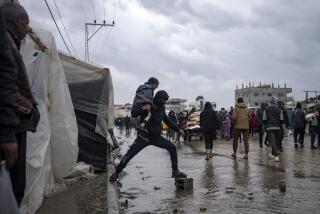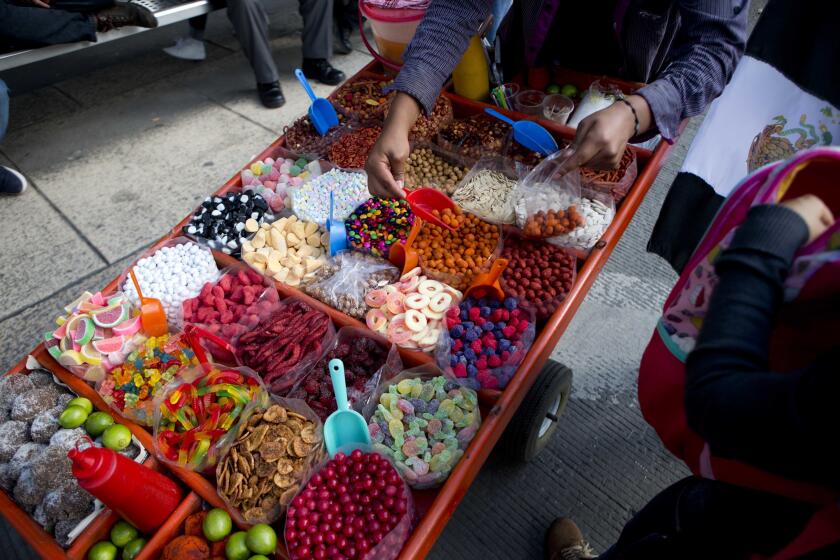Starvation Is Political
The starvation and disease among refugees in Afghanistan are becoming increasingly dangerous. The squalor in transit camps on the Pakistani border--so vividly described Thursday by The Times’ Tyler Marshall--breeds not just sickness and death but further instability. All of the partners in the coalition against terror need to ensure that the United Nations receives all of the $1 billion necessary to provide immediate food, shelter and medical aid to these desperate refugees and others facing winter without provisions or funds. President Bush’s meeting on Wednesday with Secretary-General Kofi Annan and other U.N. officials about providing aid was a welcome sign.
Even before the United States launched its struggle against the Taliban and Al Qaeda, civil war and a four-year-long drought had uprooted millions in Afghanistan. Bombing strikes and the fragmentation of power have considerably worsened matters. Drivers are refusing to take food aid to places like Helmand province, west of the Taliban stronghold of Kandahar, saying the situation resembles that of 1992 when Afghanistan descended into warring fiefdoms.
The need for relief is urgent particularly in the north, where drought has ravaged the countryside. Up to 7.5 million Afghans in a population of 25 million are at risk from starvation, tuberculosis, parasites and malaria. Refugees on the move and in temporary camps are in the worst shape.
The U.S. and its allies, however, are bickering over aid. The U.S. has delayed deploying allied troops to protect aid shipments out of concern that anything other than airdrops might interfere with its military operations. But humanitarian aid is not a sideshow; it is an intimate part of creating a stable Afghanistan.
Aid needs to be transported by land, and that requires protection. Russia has already sent in troops on humanitarian missions. Given that the main combat role is being played by American troops, it would not be a big stretch for U.S. troops to safeguard land routes. At the same time, the coalition partners--and not the United States alone--must pony up the money for relief. Aid organizations like the Red Cross can play a valuable supporting role, but only the U.N. has the resources and staff to stave off a huge humanitarian disaster.
More to Read
Sign up for Essential California
The most important California stories and recommendations in your inbox every morning.
You may occasionally receive promotional content from the Los Angeles Times.










